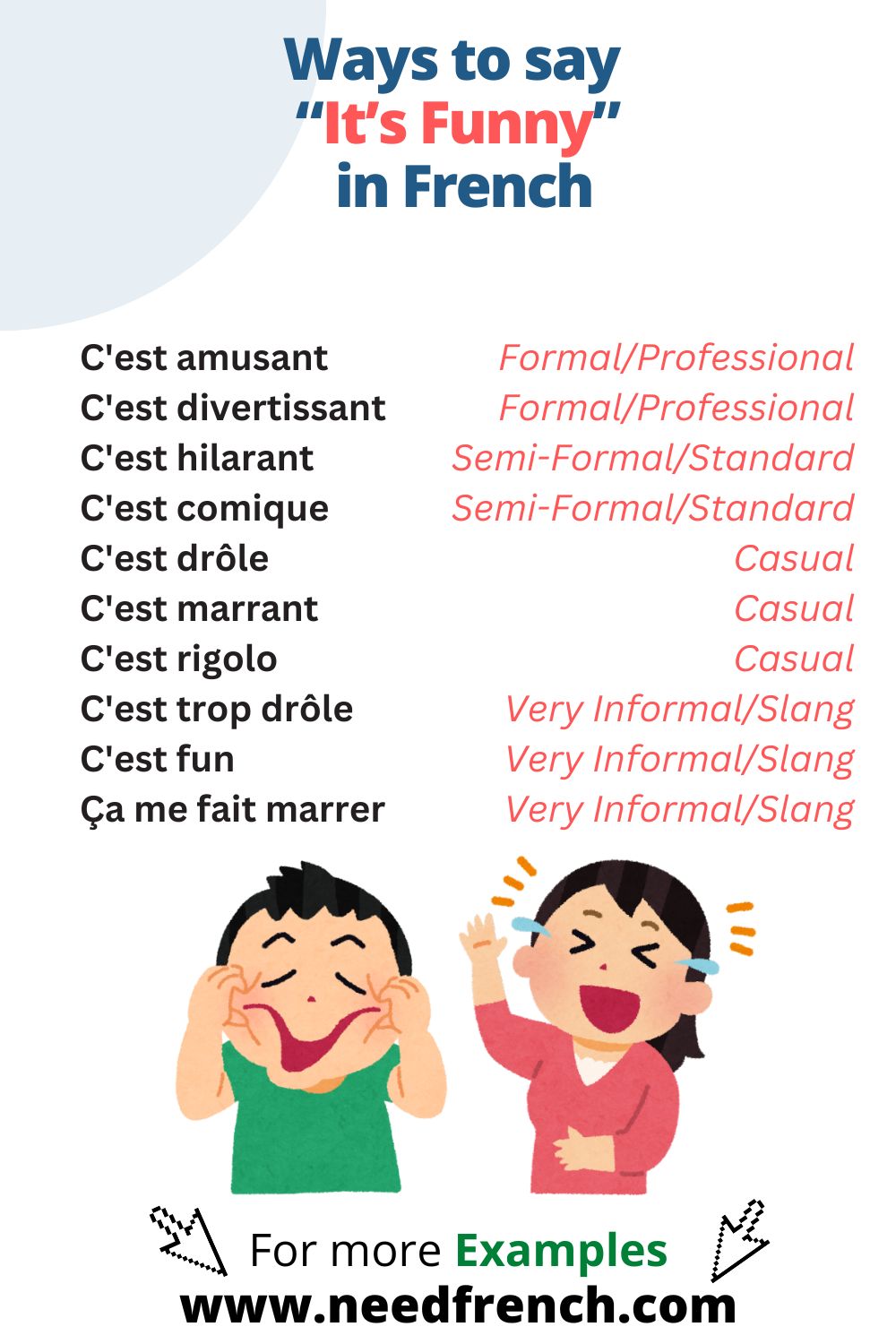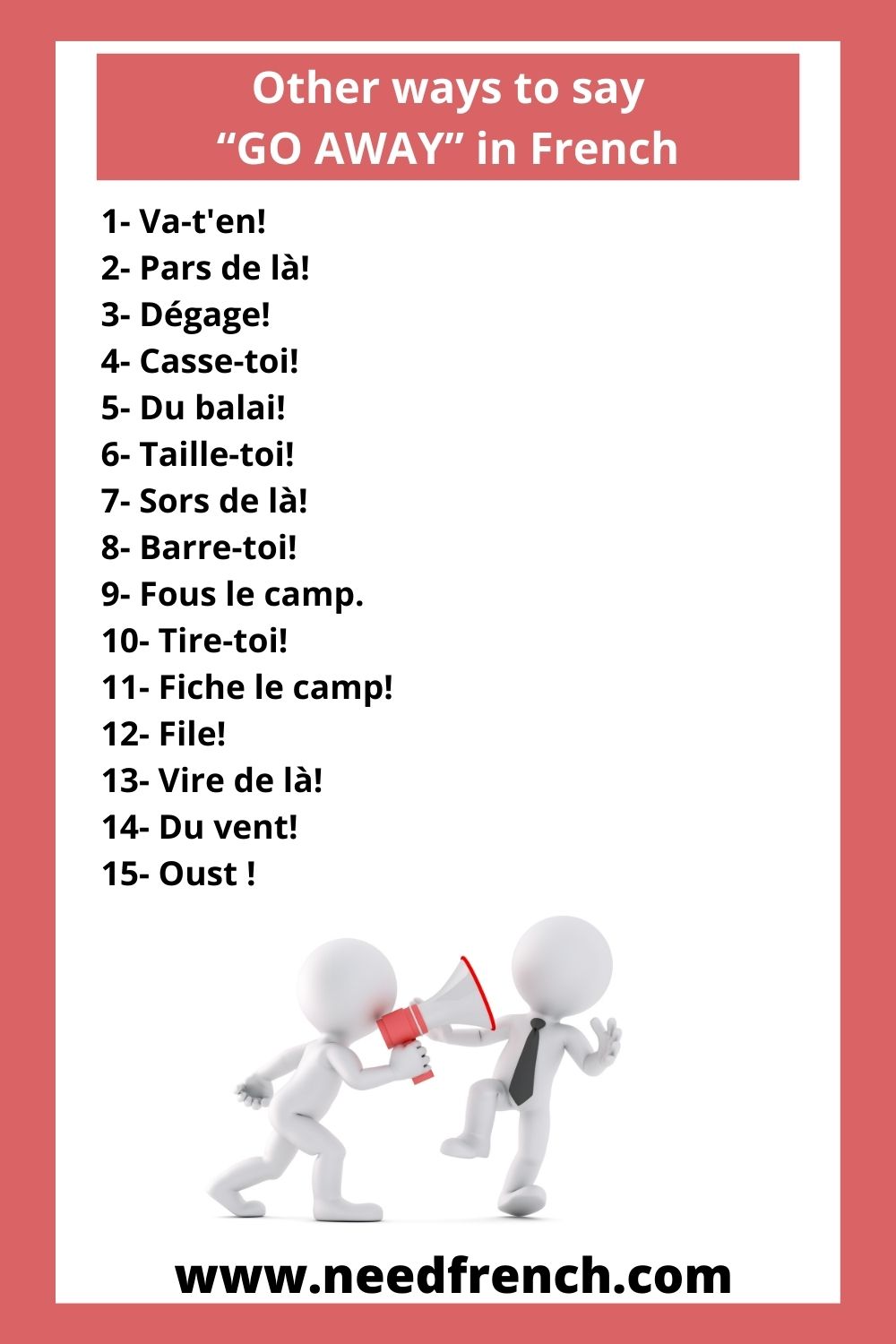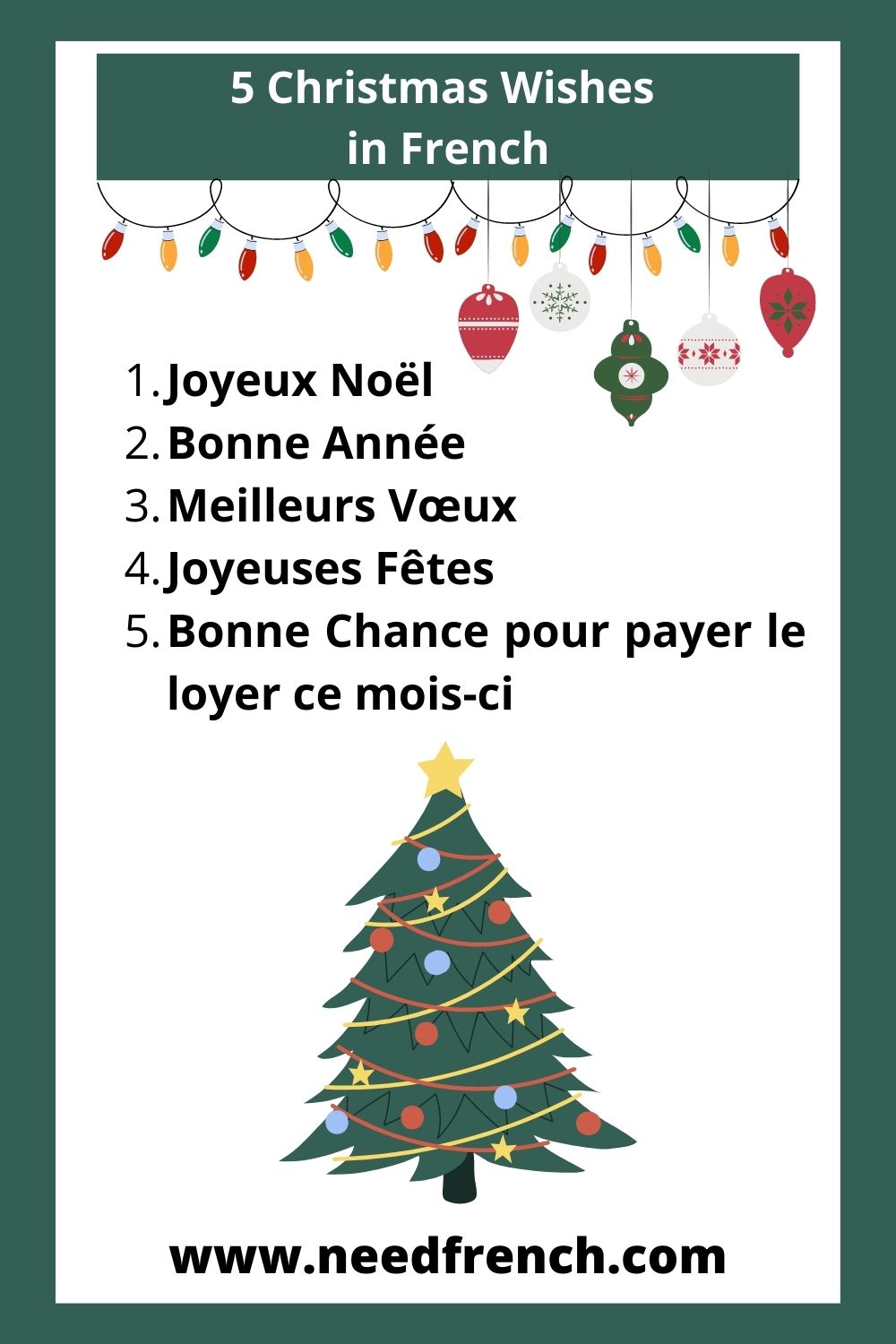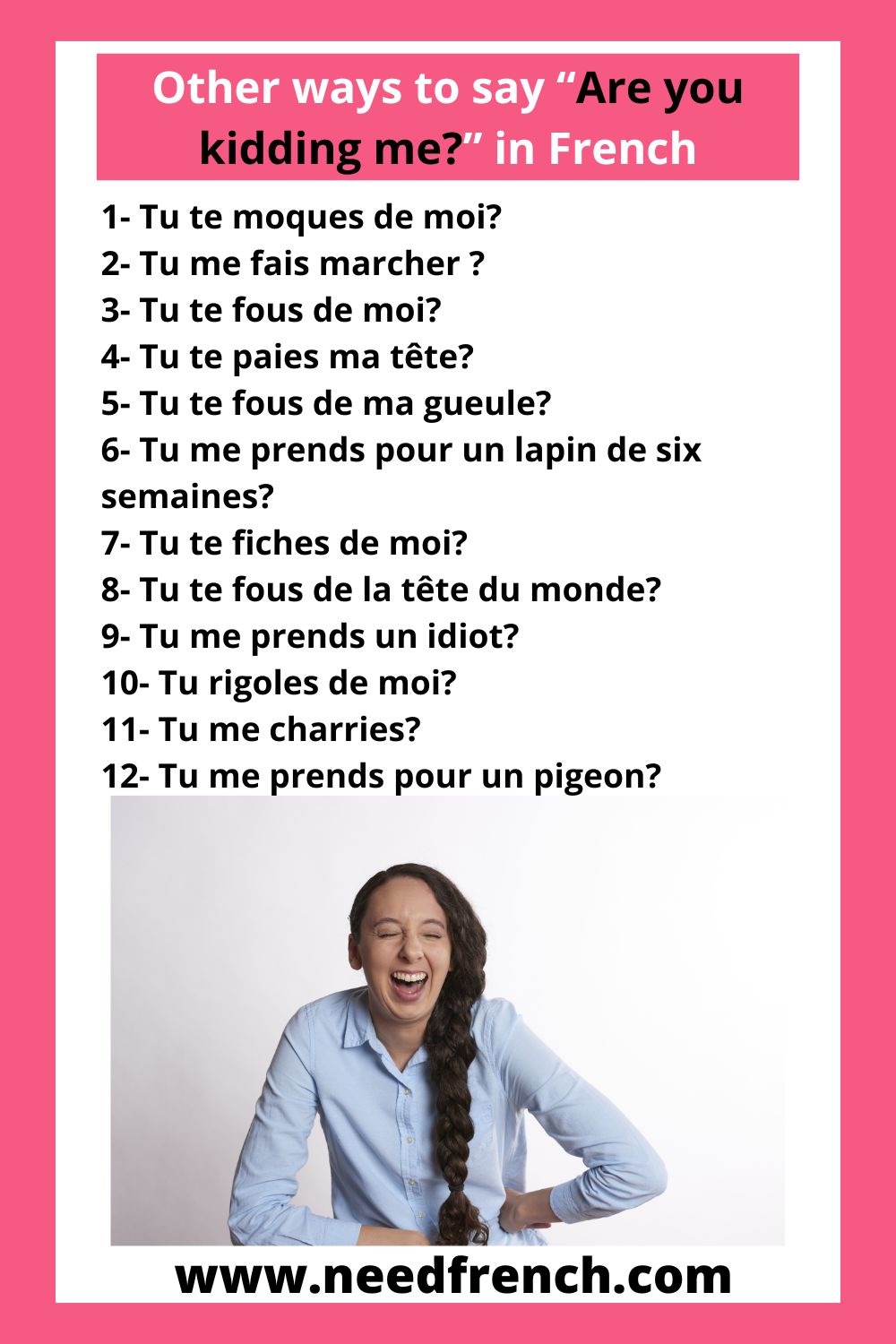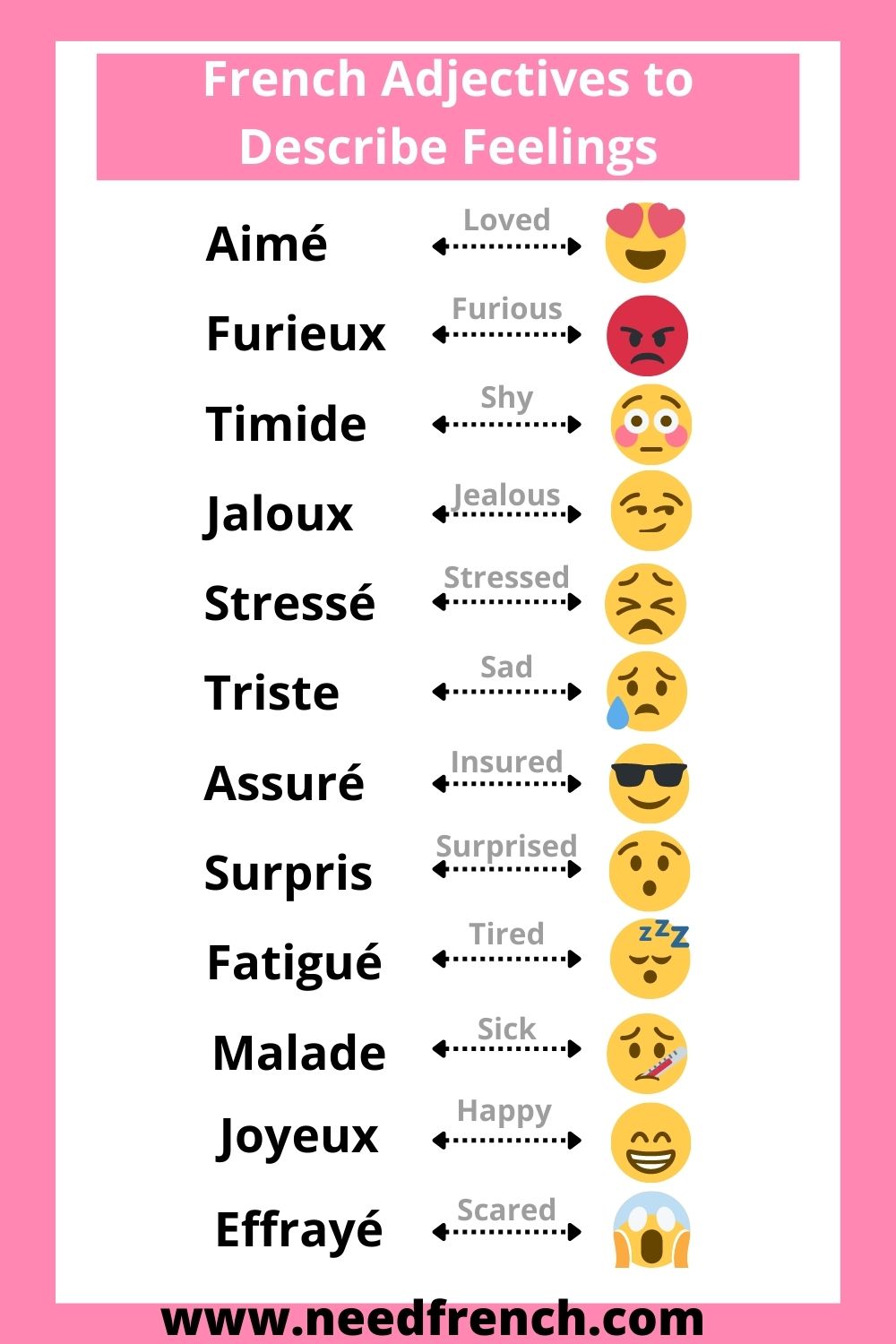French has a rich vocabulary for expressing humor and amusement, from formal appreciation to slang expressions of hilarity. This guide will help you choose the right expression for any situation and better understand French humor culture.
Table of Contents
ToggleExpressions by Formality Level
Formal/Professional
1. C’est amusant
Pronunciation: /sɛt amyzɑ̃/ (set ah-mew-zahn)
- Formal, polite way to say something is amusing
- Appropriate in professional settings
- Example: “Son anecdote était amusante.” (His/her anecdote was amusing.)
2. C’est divertissant
Pronunciation: /sɛ divɛʁtisɑ̃/ (say dee-vair-tee-sahn)
- More formal, means “it’s entertaining”
- Less about humor, more about pleasant entertainment
- Example: “Ce spectacle est très divertissant.” (This show is very entertaining.)
Semi-Formal/Standard
3. C’est hilarant
Pronunciation: /sɛt ilɑʁɑ̃/ (set ee-lah-rahn)
- Means “it’s hilarious”
- Stronger than “funny,” indicates loud laughter
- Example: “Ce film est vraiment hilarant !” (This movie is truly hilarious!)
4. C’est comique
Pronunciation: /sɛ kɔmik/ (say koh-meek)
- Standard expression, means “it’s comical”
- Often used for intentional humor
- Example: “Sa façon de raconter l’histoire est comique.” (His/her way of telling the story is comical.)
Casual/Everyday
5. C’est drôle
Pronunciation: /sɛ dʁol/ (say drohl)
- Most common everyday expression for “it’s funny”
- Versatile and widely understood
- Example: “C’est drôle comme les choses changent.” (It’s funny how things change.)
6. C’est marrant
Pronunciation: /sɛ maʁɑ̃/ (say mah-rahn)
- Casual, friendly way to say something is funny
- Very common in everyday speech
- Example: “Son histoire était marrante.” (His/her story was funny.)
7. C’est rigolo
Pronunciation: /sɛ ʁigolo/ (say ree-go-loh)
- Playful, light-hearted expression
- Slightly childish but used by adults too
- Example: “Ce petit jeu est rigolo.” (This little game is fun/funny.)
Very Informal/Slang
8. C’est trop drôle
Pronunciation: /sɛ tʁo dʁol/ (say troh drohl)
- Intensified version with “trop” (too/very)
- Popular among younger people
- Example: “Ce mème est trop drôle !” (This meme is so funny!)
9. C’est fun
Pronunciation: /sɛ fœn/ (say fun)
- Anglicism, very casual
- More about being fun than funny
- Example: “Cette soirée était fun.” (This party was fun.)
10. Ça me fait marrer
Pronunciation: /sa mə fɛ maʁe/ (sah muh fay mah-ray)
- Very casual, means “it makes me laugh”
- Example: “Ses blagues me font marrer.” (His/her jokes make me laugh.)
Additional Expressions
- C’est à mourir de rire – Very funny, “it’s to die laughing”
- C’est à se tordre de rire – Extremely funny, “it’s enough to make you double over with laughter”
- C’est tordant – Very funny, “it’s twisting” (implying laughing so hard you twist)
- Ça me fait pleurer de rire – “It makes me cry with laughter”
- C’est un truc de fou – Very informal, “it’s crazy stuff” (used for something extremely funny)
- C’est la blague – Informal, “that’s the joke”
- J’en pleure – Very informal, “I’m crying from it” (from laughter)
Degrees of Humor
From mild amusement to hysterical laughter:
- C’est divertissant – Entertaining (mild)
- C’est amusant – Amusing (mild)
- C’est rigolo – Playfully funny
- C’est drôle/marrant – Funny (standard)
- C’est hilarant – Hilarious
- C’est à mourir de rire – Extremely funny
